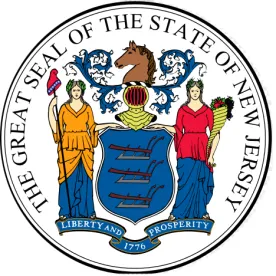The New Jersey Department of Labor and Workforce Development (NJDOL) has issued final regulations on the New Jersey Earned Sick Leave Law (ESLL), ending more than a year’s anticipation following the close of the proposed regulations’ comment period in 2018.
Though short on substantive changes, an extensive comment-and-response section provides more guidance to the NJDOL’s interpretation and enforcement of the ESLL. Significantly, it discusses the ESLL’s interplay with collective bargaining agreements (CBAs), existing paid time off (PTO) policies, and employee leave laws. It also explains the permissible use and payment of ESLL.
(On the proposed regulations, see our article, New Jersey Department of Labor Releases Proposed Paid Sick Leave Regulations.)
Benefit Year: Substantive Revision
The final regulations correct references and clarify ESLL rights when an employee is rehired, but contain little other substantive revisions. Indeed, the NJDOL notes that the regulations required no further public comment due to the insubstantial nature of the revisions.
Nevertheless, the final regulations eliminate the requirement that an employer establish a single benefit year applicable to all employees. In the comments, the NJDOL explains that an employer may lawfully utilize an employee’s anniversary year as the benefit year for purposes of the ESLL.
Issues Addressed in Comments
The final ESLL rules include 118 separate comments and responses on the interpretation and enforcement of the ESLL. They provide additional guidance to employers on many issues left unsettled by the statute and the regulations.
PTO Policies
The comments make clear the risks associated with using a PTO policy to satisfy the ESLL’s requirements. The NJDOL explains that, to comply with the ESLL, an employer’s PTO policy must: (a) permit an employee to use all of the PTO for reasons covered by the ESLL; (b) provide for accrual or advancement in accordance with the ESLL’s requirements (i.e., 40 hours advanced or accruing at a rate of one hour for every 30 hours worked); (c) allow employees to use the time off in accordance with the ESLL; (d) provide for payment of sick time in accordance with the ESLL; and (e) provide for payout or carryover in compliance with the ESLL.
The NJDOL takes the position that these requirements must apply to each hour of PTO accrued under an employer’s policy, regardless of the amount of PTO provided under the policy, to comply with the ESLL. Accordingly, an employer that uses a PTO policy to satisfy its obligations under the ESLL (rather than implementing a separate sick leave policy for ESLL compliance) must comply with all ESLL requirements for all PTO hours, including, but not limited to, the restrictions on forfeiture, carryover, documentation, and notice provisions, as well as prohibitions against retaliation for using ESLL.
Family and Medical Leave Act
The NJDOL explains that the terms of the federal Family and Medical Leave Act (FMLA) do not conflict with the ESLL. The FMLA permits an employer to require an employee to exhaust paid sick leave before using unpaid FMLA leave. The ESLL prohibits an employer from requiring an employee to use available earned sick leave. The NJDOL states that it saw no conflict between the FMLA and ESLL regulation prohibiting an employer from requiring use of earned sick leave. It notes the FMLA does not “contemplate the circumstance where a State law, rather than an independently established employer policy, creates an employee’s entitlement to accrued paid leave and where that State law expressly prohibits an employer from requiring an employee to use the statutorily mandated accrued paid leave.”
Accordingly, to the extent an employer’s FMLA policy requires an employee to exhaust available paid sick time before taking FMLA leave, that policy must be revised to comply with the ESLL.
Non-Discretionary Bonuses, Gratuities
The NJDOL states that non-discretionary bonuses (i.e., bonuses measured by hours worked, production, or efficiency) must be included in the calculation of ESLL compensation. It explains that a non-discretionary bonus is “as much a core component of an employee’s compensation as is his or her bi-weekly paycheck.” The NJDOL did not explain how employers can include the non-discretionary bonuses in calculating the rate of pay for the ESLL, especially when the non-discretionary bonus is not known at the time ESLL is used (e.g., quarterly or annual non-discretionary bonus).
Likewise, the final regulations and comments offer little guidance for an employer with tipped employees. Even though New Jersey Wage and Hour Law expressly excludes gratuities from the definition of “wages,” the NJDOL’s final regulations contemplate an employer’s payment of gratuities as part of an employee’s ESLL rate of compensation. While employers may pay tipped employees the minimum wage for ESLL where it is not “feasible” to determine the exact hourly wage, the comments fail to explain the circumstances under which the determination of the hourly wage for tipped employees would not be “feasible.” Indeed, the comments state, “Nowhere within the body of the ESLL does it indicate that all tipped employees shall be paid for earned sick leave at the State minimum wage.” In other words, a blanket policy of paying ESLL at minimum wage for all tipped employees likely is impermissible, unless an employer can establish that determining the employee’s exact hourly rate is not feasible.
Use, Payment
The NJDOL in the comments raises doubt on whether an employee may use earned sick leave in the event of a snowstorm or other weather event, unless the event reached the level of a natural disaster. However, ESLL time may be used by a parent to attend a sporting event, play, or similar activity where parental attendance “had been ‘requested or required by a school administrator, teacher, or other professional staff member responsible for the child’s education.’”
The comments also clarify that a failure to pay ESLL constitutes a failure to pay wages in accordance with the New Jersey Wage Payment Law. That law requires employer to pay non-exempt employees at least twice a month on regular paydays designated in advance. The requirement applies to any payout of earned sick leave at the conclusion of the benefit year.
Collective Bargaining Agreements
In the comments, the NJDOL clarifies that employees represented by a union may accept earned sick leave benefits greater or less than those provided in the ESLL or even waive those rights altogether as a part of the collective bargaining process. The comments wade into issues typically covered by federal law regarding CBAs by explaining that the terms of the ESLL apply upon expiration of a CBA. The NJDOL interprets the ESLL as applying to the parties of an expired CBA immediately if not replaced by a new CBA.
Additional Provisions
The NJDOL’s detailed responses cover a wide array of topics that an employer should consider. These include:
-
Affirming the carryover obligation even where an employer advances (frontloads) the full amount of earned sick leave at the beginning of the benefit year;
-
Providing no exceptions for higher education employees, direct-care personnel, ministers, or other categories of workers;
-
Refusing to limit the number of days an employer may “black-out” for verifiable high-volume or special events; and
-
Confirming an employer’s ultimate responsibility for maintaining compliance with any statutory staffing requirement, despite any obligations under the ESLL.
Importantly, the NJDOL appears to agree the ESLL is not clear in several areas or creates difficulties for employers as written (e.g., carryover for employers who frontload and notice restrictions for certain employees). The NJDOL repeatedly advises that it does not have the statutory authority to revise the ESLL through regulations. This falls on the legislature to modify the ESLL. The NJDOL’s comments and responses may act as a road map for the legislature.
The NJDOL also advises that additional rulemaking on the applicability of ESLL to out-of-state employees is contemplated. The comments note that any such rules will follow the existing Division on Civil Rights regulations on applicability of the New Jersey Family Leave Act.
***
Given the extensive comments, employers should review their ESLL policies to ensure compliance. Employers that use a PTO policy to satisfy the ESLL requirements should review with counsel the pros and cons given the NJDOL’s position that, essentially, all the PTO hours will be viewed as covered under the ESLL.





 />i
/>i

